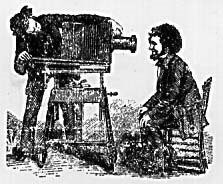From reading the introductions of the texts Introducing Cultural Studies and A Cultural Studies Reader, I found that both share many of the same ideas and agree on the history and parameters of cultural studies. Cultural studies is viewed as having no true beginning, unlike physics or philosophy. Both texts mentioned the “founding fathers” (Hoggart, Williams, Thompson, and Hall) and addressed the importance of the Second World War as being a key beginning point in the cultural studies field. Also, both texts addressed the issue of using/creating the term “others” as causing a lack of individualism and creating a negative bias. Race, class, and gender are also mentioned as being defining features in culture.
1. Term from Keywords: “Other”
“The other is what eludes our consciousness and knowing, and it is what resides outside the sphere of “our” culture and community” (Robins 249).
“The other is necessary for change and creativity to exist in the world (both collective transformation and self-alteration)” (Robins 249).
The term “other” is referred to in both texts, referring to any group outside of one’s self. Keywords provides a better understanding of the term and describes the several dimensions the term has.
2. Link to Wikipedia: “New Left” <http://en.wikipedia.org/wiki/New_Left>
The New Left played a key role in cultural studies and is even thought of as being the forerunner to the field of study. Provides the origins, key leaders, and history of the movement.
3. Link to other outside source: “Birmingham's cultural studies department given the chop”
<http://education.guardian.co.uk/higher/socialsciences/story/0,,745058,00.html>
Provides an insightful view of the present day situation of what has happened to the Centre for Contemporary Cultural Studies in Birmingham, the sight of where the name “cultural studies” originated. Also, all four “founding fathers” (Hoggart, Williams, Thompson, and Hall) were at one time associated with the CCCS.
announcements
This blog was created by and for students in an Introduction to Cultural Studies class at the University of Washington. Through an investigation of urban experience and representation--in theory, in graphic novels and in our own "readings" of Seattle's University District--we considered the formation and history of cultural studies as an (anti)discipline, with a special emphasis on the questions, "What does cultural studies do, and how do you do cultural studies?"
If you'd like to know more about the class, the blog or our U-District artifact project, please contact Gabrielle Dean: gnodean@u.washington.edu.
If you'd like to know more about the class, the blog or our U-District artifact project, please contact Gabrielle Dean: gnodean@u.washington.edu.
Subscribe to:
Post Comments (Atom)
blog archive
-
▼
2008
(92)
-
▼
April
(35)
- Identity in City of Glass
- History of Origins: Race Studies
- History of Origins: Gender Studies
- History of Origins: Gender Studies
- History of Origins: America
- History of Origins: Race Studies
- History of Origins: Gender Studies
- History of Origins: Race Studies
- History of Origins: Race Studies
- History of Origins: Media and Science
- History of Origins: Media and Science
- History of Origins: Gender Studies
- History of Origins: Media and Science
- History of Origins: European Theory
- History of Origins: European Theory
- History of Origins: European Theory
- History of Origins: European Theory
- History of Origins: European Theory
- History of Origins: America
- History of Origins: European Theory
- History of Origins: America
- History of Orgins: European Theory
- History of Origins: European Theory
- History of Origins: Great Britain
- History of Origins: Great Britain
- Cultural Studies in Britain
- Cultural Studies in Britain
- History of Origins: General
- History of Origins: General
- History of Origins: General
- History of Origins: General
- "Orientalism"
- Are You an Author?
- "Paris, Capital of the 19th Century"
- READING: A WEB MODEL
-
▼
April
(35)

No comments:
Post a Comment